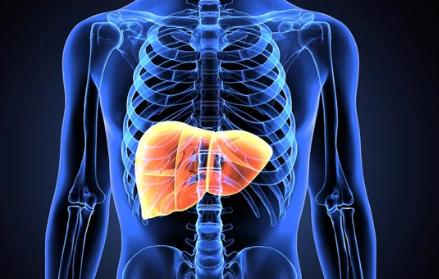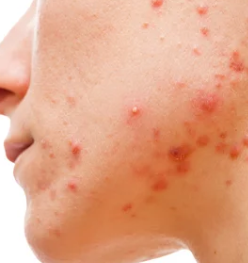Sugar causes us to gain
weight
Obesity
rates are rising worldwide. One of the main culprits is added sugar, which
commonly found in soft drinks and packaged sweets
Fructose,
is a type of simple sugar, is abundant in juices, cola-type soft drinks, iced
tea and energy drinks
Fructose,
more than glucose, stimulates the appetite and desire for food. The basic sugar
found in starchy food is glucose
Furthermore,
a high glucose diet may lead to resistance to hormone “leptin” which regulates
appetite and tells our bodies when to stop eating.
Simply put,
sugary and soft drinks do not satisfy your hunger. They simply open it to
consume more calories (mostly in liquid form), resulting in weight gain.
Sugar depletes the body's
energy reserves.
Sugary
foods and beverages have a high glycemic index. When we consume them, their
blood sugar and insulin levels skyrocket. The increase in energy levels, on the
other hand, is elusive.
Products
and foods that are high in sugar but lack proteins, fats, and fiber provide
instant energy but then cause a rapid drop in blood sugar.
A sudden
drop in blood sugar can cause psychological transitions, intense hunger,
cravings, and gluttony
If you want to avoid this energy drain, choose sweet unprocessed carbohydrates with fiber, such as fruit.
It is best
not to eat dessert alone on an empty stomach. It would be healthy to eat
something with protein.
This will help to keep your blood sugar levels stable. Eating an apple with a handful of almonds is one such example. This type of snack will provide you with long-lasting energy as well as a plethora of nutrients.
Sugar has been linked to
an increase in the risk of cardiovascular disease.
A
high-sugar diet is linked to an increased risk of many diseases, including
cardiovascular disease and heart attacks, which are the leading causes of death
worldwide.
Sugary diets, according to research, can easily lead to obesity, blood sugar problems, high blood pressure, chronic inflammation, and high triglycerides. All of the preceding are high risk factors for cardiovascular disease
Furthermore, sugar consumption, primarily from sugary drinks (soft drinks, coffees, and commercial juices), has been linked to atherosclerosis.
A condition
in which the arteries become clogged with lipids that have settled on the
artery walls.
Simply put, one soft drink per day easily places us in the high risk category for cardiovascular problems.
Sugar consumption raises
the risk of developing diabetes.
Diabetics
have more than doubled globally in the last 30 years. There are several reasons
for this, but the link between excessive sugar consumption and type 2 diabetes
is clear.
Obesity,
which is frequently associated with the consumption of sugar and other
processed carbohydrates like flour, is the most significant risk factor for
diabetes
Long-term sugar consumption leads to insulin resistance, a pancreatic hormone that regulates blood sugar levels
Insulin
resistance raises blood sugar levels, increasing the risk of developing
diabetes.
Sugar causes fat to accumulate in the liver.
In many
cases, increased fructose consumption has been linked to an increased risk of
fatty liver (fatty infiltration of the liver).
Unlike glucose and other simple carbohydrates, which are used by multiple tissues throughout the body, fructose is almost entirely metabolized in the liver.
In the liver, fructose is converted to energy or stored as glycogen.
However,
because liver reserves are easily replenished, excess fructose is stored as
fat.
Large
amounts of added sugar, particularly fructose, impair liver function and
frequently result in non-alcoholic fatty liver disease (NAFLD), a condition in
which fat accumulates in the liver
Sugar consumption has been linked to the appearance of acne.
Acne and
pimples are associated with a diet high in refined carbohydrates such as sugar
and flour.
Foods with
a high glycemic index, such as processed and packaged commercial sweets,
significantly raise blood sugar levels.
This causes
a significant increase in insulin levels in the blood, which leads to increased
androgen secretion, oiliness, and inflammation, all of which are directly
related to the development of acne (16).
Increases the likelihood of depression
A
nutrient-dense diet rich in fruits, vegetables, and salads improves mood and
psychology.
A diet high
in sugar, flour, processed carbohydrates, packaged sweets, and ready-to-eat
foods, on the other hand, increases the risk of developing depression.
Researchers believe that sudden fluctuations in blood sugar after consuming sugar cause neurotransmitter deregulation while also triggering inflammation.
These two
factors have an impact on mental health in some way
This could result in premature skin aging.
Wrinkles
are a normal part of the aging process. Regardless of your health, they will
appear sooner or later. However, diet has a significant impact on how quickly
they appear.
Proper nutrition, on the other hand, plays a significant role in the anti-aging of the face and body.
Advanced non-enzymatic glycosylation products (ANDPs) or advanced glycation end products (AGEs) are compounds formed when proteins and sugars are consumed together.
Many studies blame them for premature skin aging (
AGEs
degrade collagen and elastin, the skin's building blocks and the foundation of
youth and beauty.
When
collagen and elastin are depleted, the skin relaxes, loses luster, and begins
to sag.
If you
consume sugar in any form on a regular basis, you must supplement with
antioxidant ingredients and elements.
Cancer risk may be
increased.
A high
sugar intake raises the risk of developing several cancers. In theory, a diet
high in sugary foods and beverages can lead to obesity, which increases the
risk of cancer significantly.
Furthermore, a high-sugar, processed-carbohydrate diet causes chronic inflammation in the body and can lead to insulin resistance.











No comments:
Post a Comment
You can add your comment